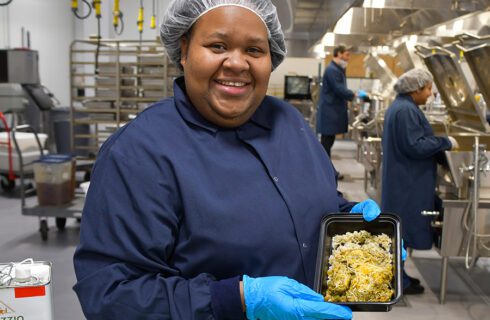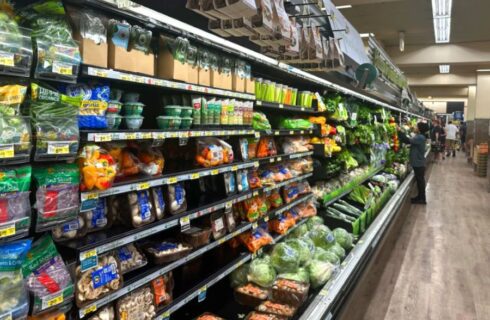New rule takes effect Dec. 23, adds critical protections for immigrant families
The Greater Chicago Food Depository commends the Department of Homeland Security’s new public charge rule, which was announced on Sept. 8 and goes into effect on Dec. 23. This rule affirms that participation in federal nutrition programs and most other public benefit programs will not affect immigrant rights or potential paths to citizenship.
The new public charge rule refutes a proposed rule that was issued during the Trump administration, which dictated that immigrant households could jeopardize future citizenship or legal residency if they utilized federal benefits they are legally eligible to receive, including the Supplemental Nutrition Assistance Program (SNAP).
While the Trump-era public charge rule was blocked in courts, it raised fears among mixed status households that deterred immigrants and their families from applying for SNAP, our nation’s frontline defense against hunger. It also had a chilling effect on immigrants’ participation in other nutrition programs that never applied to the public charge test, including school meals and receiving USDA food at nonprofit-led food distributions.
In addition to overturning the 2020 rule, the new public charge rule clearly states that:
- Applying for or receiving SNAP, WIC, Medicaid, the Child Tax Credit and housing benefits will not be considered in a public charge determination.
- A child’s or other family member’s use of federal benefit programs never affects the applicant’s immigration application.
- Many cash programs will not affect immigration applications, including unemployment programs, utility assistance, pandemic relief, veterans benefits and more.
- The Department of Homeland Security can consider use of SSI, TANF and state and local cash assistance for income maintenance. However, DHS will take into account how long the benefit was received and how recently, among other factors like an individual’s education and skills, income, and affidavit of support in making a determination.
Additionally, the new rule specifies categories of non-citizens who are exempt from a public charge determination, including people applying for granted asylum, refugee status, or temporary protected status; special immigrant juveniles; and Afghan or Iraqi Special Immigrant Visa holders. Violence Against Women Act (VAWA) self-petitioners, and survivors of human trafficking and certain other crimes who have applied for or been granted T or U status are generally exempt from a public charge assessment, regardless of their ultimate pathway to adjust status. People applying for US citizenship are not subject to public charge.
This new rule is a victory for anti-hunger advocates nationwide, including Feeding America member food banks and our local partner networks. Ever since the previous rule was announced in 2019, Food Depository advocates and partners have raised their voices to defend access to vital benefit programs. We believe food is a basic and universal human right and are a proud member of the Protecting Immigrant Families Illinois coalition.
We look forward to working with our local partners to raise awareness of the new rule and immigrant household eligibility for SNAP and other nutrition programs.
Share This Post



